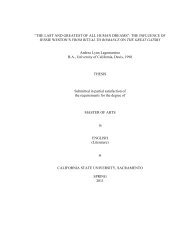COMMUNITY ACTIVISM IN OAK PARK: COMPETING AGENDAS ...
COMMUNITY ACTIVISM IN OAK PARK: COMPETING AGENDAS ...
COMMUNITY ACTIVISM IN OAK PARK: COMPETING AGENDAS ...
Create successful ePaper yourself
Turn your PDF publications into a flip-book with our unique Google optimized e-Paper software.
the poor. For example, Labor Association volunteers rallied outside the Capitol and<br />
succeeded in gaining a statewide $1 per hour pay raise for attendant care workers<br />
employed by the state’s In Home Supportive Services (IHSS) program.<br />
Labor Association members, embracing a Marxist ideology, perceived the<br />
political economy of capitalism and the unequal distribution of resources as having<br />
negative effects on the poor. From their perspective, poverty resulted from a historically<br />
marginalizing society, or capitalism. Thus, poverty was a result of structural conditions<br />
in society and social problems were attributed to the poor historically being marginalized<br />
from access to education, jobs, and property. The poor therefore did not have the socio-<br />
economic foundation for social mobility and the poor would remain poor for generations.<br />
By educating the poor about legislation that would benefit or negatively affect them, they<br />
believed the poor would be empowered and better able to represent themselves by<br />
making informative political decisions. From their perspective, systemic analyses of<br />
poverty were needed to help the poor. Members of the Labor Association strongly<br />
believed that lobbying for a government that provided universal health care, equal access<br />
to quality education, and equal access to other resources was one way that social change<br />
could occur.<br />
In hindsight, members of the Labor Association did not participate in projects to<br />
revitalize the neighborhood because they felt the only way to bring about social change<br />
was to become involved in legislative and political issues. They believed the poor would<br />
not benefit from revitalization projects because those projects were not in their interest;<br />
they were not beneficial to them. Members stayed away from neighborhood activities<br />
86



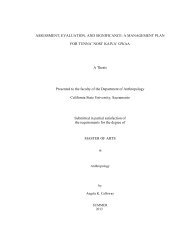
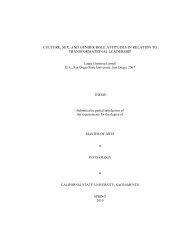
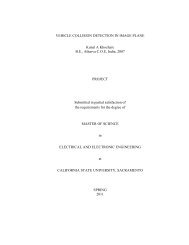
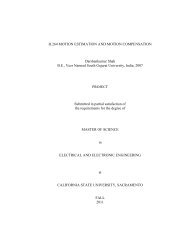
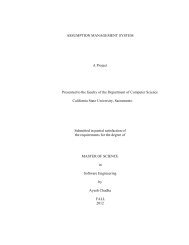
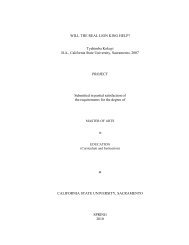
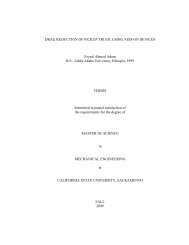
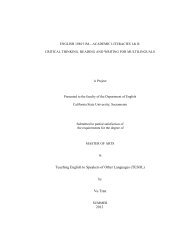
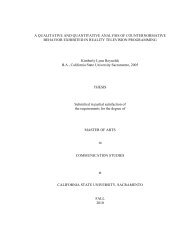
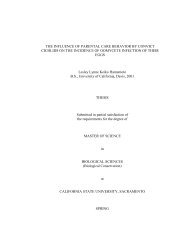
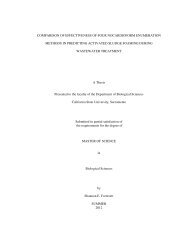
![Completed Thesis to Grad Studies[Final3].pdf](https://img.yumpu.com/17538645/1/190x245/completed-thesis-to-grad-studiesfinal3pdf.jpg?quality=85)
